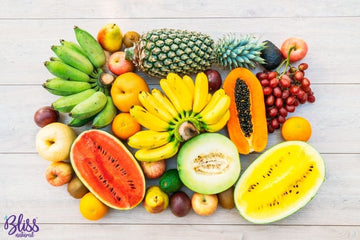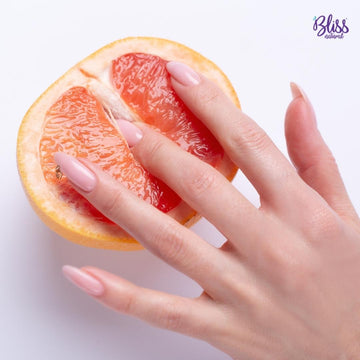
Most women think that maintaining regular menstrual cycles is just impossible! Actually, it isn’t! You just need to maintain the hormonal balance with the easily available foods around you. A little bit of effort is needed to get them ready and have them regularly. Simply eating the right foods at the right time (and regularly!!) can regulate your periods naturally.
Foods To Eat
1.Water
During the period, you tend to lose more water in the body resulting in dehydration headaches which are a common symptom of menstruation. Drinking a lot of water helps in getting relief from headaches and can also stop you from retaining water and bloating.
Water-rich fruits, such as watermelon and cucumber are great for staying hydrated. Lemon juice and coconut water are very good options too.
2.Fruits
Watermelon and cucumber have a high content of water which helps to keep the body hydrated during periods.
Papaya, Pineapple, and Mango are rich in vitamin C which increases the estrogen levels in the body. These fruits are believed to generate heat in the pelvic region causing a further contraction in the uterus and henceforth, making your periods come at their scheduled time or prevent its delay.
Pomegranate is rich in iron and is most suitable to maintain the iron levels in the body thereby regulate the menstrual cycles too
3.Vegetables
During periods, the iron levels in the body reduce. In case of heavy bleeding, a lot of blood cells are lost in the flow resulting in fatigue, body pain, and dizziness. To compensate for the loss, you need to take some iron-rich food such as leafy green vegetables, nuts, seeds, and legumes. Spinach is rich in magnesium also.
Whole, raw carrots are beneficial in maintaining the hormone balance in the body. It helps in detoxing the excess estrogen that causes symptoms such as tender or swollen breasts, mood swings and depression, heavy menstrual bleeding, and night sweats.
Beetroots are loaded with iron, calcium, vitamins, potassium, folic acid, and fibers. The nutrient contents are so high that it is not recommended for intake on the days of menses. It can be taken on non-menstruating days to improve iron levels and compensate for the loss of blood. Beetroot helps to control mood swings.
4.Ginger Tea & Peppermint Tea
Ginger has anti-inflammatory effects, which can reduce nausea and muscle pain. Ginger took in limited quantities helps in relieving gastritis and cramps during menstruation. However, consuming more can cause heartburn and stomach aches.
Peppermint tea can soothe the symptoms of PMS (Pre-Menstrual Syndrome). Specifically, it can relieve cramps or prevent muscle contractions., nausea, and diarrhea.
5.Turmeric
Turmeric is a popular home remedy for a range of health conditions, including irregular periods. Turmeric, a well-known anti-inflammatory spice, helps in reducing PMS symptoms. It can be taken along with hot water or hot milk. It relieves menstrual cramps.
6.Dark Chocolate
Dark Chocolate is rich in iron and magnesium. Recommended daily intake can reduce the severity of PMS symptoms and improve energy levels. Excess intake can lead to heavy bleeding and fatigue.
7.Cereals, Nuts & Seeds
Oats are the best for women who suffer from painful menstrual cycles as they are rich in cramp-fighting vitamins and minerals like zinc and magnesium. Whole grains like whole wheat, oats, and brown rice prevent constipation during menstruation.
Most nuts are a great source of protein and rich in omega-3 fatty acids. They also contain magnesium and various vitamins which reduce fatigue and PMS symptoms.
Flax seeds improve digestion and relieve constipation, a common symptom during menstruation.
Quinoa seeds are a complex carbohydrate-rich in iron, magnesium, protein, and vitamin B12, which can help regulate mood swings and increase your energy levels.
8.Lentils and beans
Lentils and beans are rich in protein and iron which can increase iron levels during menstruation. These foods have high fiber content which helps reduce constipation, a common symptom during menstruation
9.Yogurt
Yogurt contains magnesium and calcium and helps in relaxing your muscles and reducing painful menstrual cramps. Yogurt is a rich pro-biotic food that increases the good bacteria to fight against yeast infections which are quite common during a period or after.
Yogurt is also rich in magnesium, calcium and other essential nutrients which increases the energy levels.
10.Tofu
Tofu, made from soy milk, is a rich source of protein and minerals like iron, magnesium and calcium. It helps to support PMS-associated water retention and menstrual pain.
11.Fish
Fish is rich in omega-3 fatty acids which can reduce the intensity of period pain. As fish is rich in iron, it can help in compensating/increasing the iron levels in the blood that may be lost during periods.
Fish contains Magnesium too which can help prevent headaches and depression that are generally associated with PMS.





